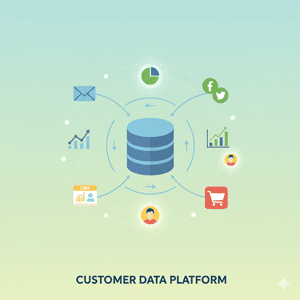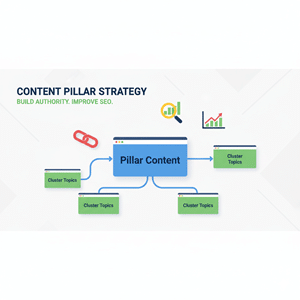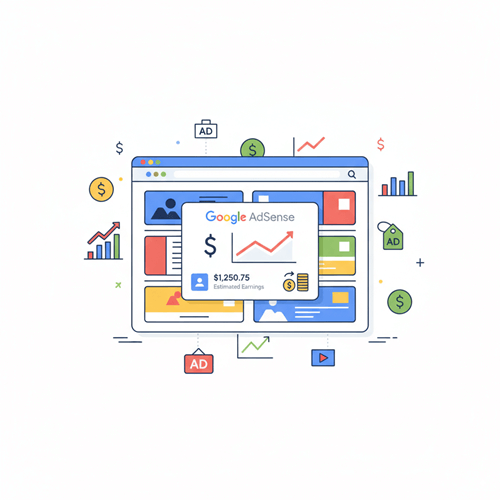What is a Customer Data Platform (CDP)?
A Customer Data Platform (CDP) is a software solution that collects, integrates, and organizes customer data from multiple sources, such as websites, applications, CRMs, and offline systems, into a centralized and lasting database. It creates a detailed profile for each customer, enabling personalized, data-driven marketing approaches.

Why CDPs Matter in Modern Marketing
Unified Customer View
Brings together multiple touchpoints to build a detailed and accurate customer profile, breaking down data silos.
Hyper-Personalization
Enables marketers to tailor campaigns based on real behavior instead of just assumptions.
Real-Time Activation
CDPs integrate effortlessly with advertising platforms, email solutions, and other tools to provide tailored experiences instantly.
Compliance-Ready
Helps businesses ensure they meet GDPR, CCPA, and other privacy regulations by managing consent and data access clearly and effectively.
Improves ROI
By reducing uncertainty and targeting the right audience at the perfect time, CDPs boost conversion rates and cut down on advertising waste.
Core Functions of a CDP
- Data Collection: Leveraging websites, mobile apps, email, CRM systems, POS systems, and social media channels
- Identity Resolution: Brings together data from multiple devices and channels into a single user profile
- Customer Profiles: Creates detailed logs that cover activities, transactions, and personal choices.
- Segmentation: Enables the creation of responsive, real-time audience groups
- Activation: Facilitates the flow of information to email systems, advertising platforms, personalization tools, and beyond.
How SEO Agency Boston Leverages CDPs for Clients
At SEO Agency Boston, we develop and oversee CDPs to create more intelligent and adaptive marketing ecosystems:
- Platform Recommendations: We assist clients in selecting the most suitable CDP, such as Segment, BlueConic, or Tealium, tailored to their technology infrastructure.
- Data Mapping: We establish data sources, attributes, and destinations to eliminate redundancy and minimize errors.
- Real-Time Triggers: Integrate CDP data with your CRM and advertising channels to initiate targeted campaigns.
- Behavioral Targeting: We leverage CDP insights to tailor landing pages, emails, and offers for a more customized experience.
- Retention Strategies: Leveraging CDP data, we develop automations aimed at retention and outline customer lifecycle maps.
Best Practices for Using a CDP
- Connect seamlessly with all pertinent data sources, website, CRM, analytics, and more.
- Implement identity resolution guidelines to prevent duplicates.
- Create data collection and consent policies that adhere to privacy regulations
- Connect targeted groups instantly to your marketing platforms
- Consistently assess the quality and thoroughness of data. Leverage predictive scoring and
- lifetime value modeling when accessible.
Related Terms
- CRM (Customer Relationship Management)
- DMP (Data Management Platform)
- Behavioral Targeting
- Customer Segmentation
- Marketing Automation
Some Common FAQs for CDP
A CRM keeps track of recognized customer interactions, such as support tickets or purchases, whereas a CDP gathers data from various channels, encompassing both known and anonymous users, to build a comprehensive behavioral profile.
No. Numerous contemporary CDPs cater to small and mid-sized enterprises, featuring flexible pricing and easy-to-use integrations.
They fulfill various roles. A DMP primarily manages anonymized, third-party data to enhance ad targeting efforts. A Customer Data Platform emphasizes the use of first-party, consented data for marketing through channels that you own.

Make Every Customer Interaction Count
With CDPs, you don’t merely identify your audience—you truly grasp their needs. At SEO Agency Boston, we harness the potential of data-driven marketing by placing CDPs at the core of your growth strategy.






